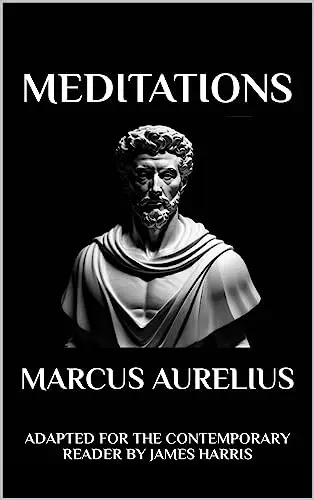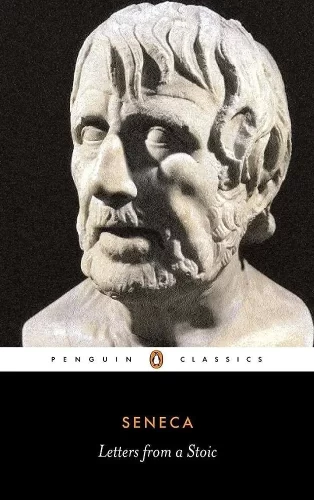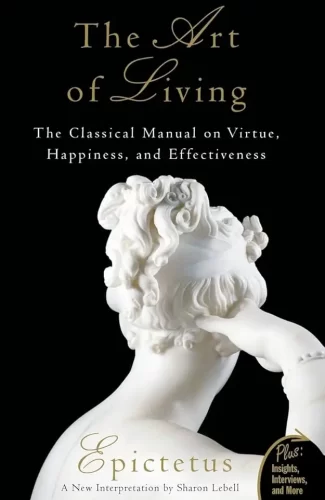Stoic Books
Stoic books are an excellent source of inspiration for those seeking inner peace and self-improvement or simply know more about history. Find the best ones here.
Meditations
Marcus Aurelius
“Meditations” is a timeless philosophical work written by Marcus Aurelius, a Roman Emperor and Stoic philosopher, in the second century AD. This collection of personal writings, often considered a diary or journal, reflects Aurelius’ thoughts, reflections, and philosophical musings.
In “Meditations”, Marcus Aurelius explores various aspects of Stoicism, emphasizing rationality, virtue, and self-discipline as the path to true happiness. The book is divided into twelve books, each offering insights into different aspects of life, ethics, leadership, and the pursuit of inner tranquility.
Throughout the text, Aurelius discusses the impermanence of life, the importance of self-control, and the acceptance of external events beyond our control. He advocates for living under one’s values and seeking wisdom and virtue above all else.
“Meditations” guides individuals seeking personal and moral development, offering practical wisdom for navigating life’s challenges. It has remained a profound and influential work for centuries, resonating with readers from various backgrounds. It continues to be a source of inspiration for those on a quest for inner peace and self-improvement.
The Beginner's Guide to Stoicism
Matthew Van Natta
“The Beginner’s Guide to Stoicism” by Matthew Van Natta is a user-friendly introduction to the ancient philosophy of Stoicism. In this book, Van Natta provides a clear and accessible overview of Stoic principles and practices, making them understandable and applicable to modern life.
The book explores critical Stoic concepts, including virtue, wisdom, and self-discipline, and offers practical guidance on implementing Stoic teachings into everyday experiences.
Van Natta emphasizes the importance of understanding and focusing on what is within our control while accepting what is not. He also highlights the significance of living by our values and developing resilience in adversity.
“The Beginner’s Guide to Stoicism” provides readers with actionable advice and exercises to help them begin their Stoic journey. The book is a valuable resource for anyone interested in exploring Stoicism as a practical philosophy for personal growth, self-improvement, and achieving greater tranquility in a complex world.
Letters from a Stoic
Seneca
“Letters from a Stoic” is a collection of philosophical letters written by the Roman Stoic philosopher Seneca. These letters, also known as “Epistulae Morales ad Lucilium” in Latin, offer profound insights into Stoic philosophy and practical advice for living a virtuous and meaningful life.
Seneca’s letters are written as if he is addressing his friend Lucilius, and they cover a wide range of topics, including ethics, resilience, friendship, and the pursuit of wisdom.
He emphasizes the importance of self-examination, self-discipline, and living in accordance with nature. Seneca also guides us on how to face adversity with equanimity and how to cultivate inner tranquility.
Throughout “Letters from a Stoic”, Seneca encourages readers to reflect on their values, embrace simplicity, and confront life’s challenges with wisdom and fortitude. His timeless wisdom inspires individuals seeking personal growth, resilience, and a deeper understanding of Stoic philosophy.
The Art of Living
Epictetus
“The Art of Living” by Epictetus is a collection of Stoic teachings and principles that offer practical guidance for living a virtuous and fulfilling life. Epictetus, a Stoic philosopher who lived during the first century AD, presents his philosophy through a series of discourses and conversations.
Key themes in the book include the importance of recognizing what is within our control and what is not, the pursuit of wisdom and virtue, and the cultivation of inner resilience.
Epictetus encourages readers to detach themselves from external circumstances and focus on their own thoughts, behaviors, and values.
“The Art of Living” emphasizes the idea that true freedom and happiness come from mastering one’s mind and choices. It offers insights into navigating life’s challenges with equanimity, maintaining a sense of inner peace, and living following Stoic principles.
Epictetus‘ teachings resonate with readers seeking wisdom, self-improvement, and a more meaningful and fulfilling way of life.




